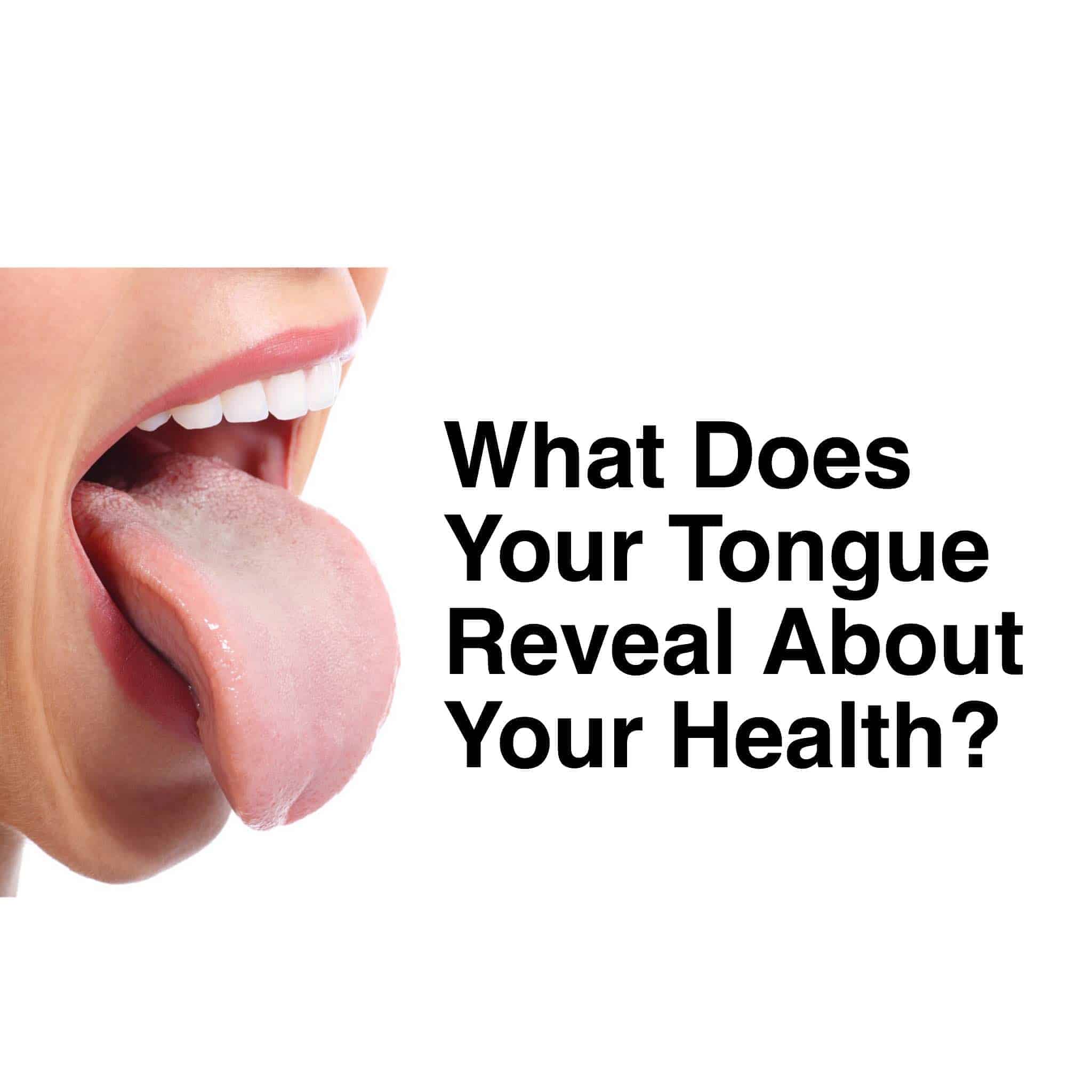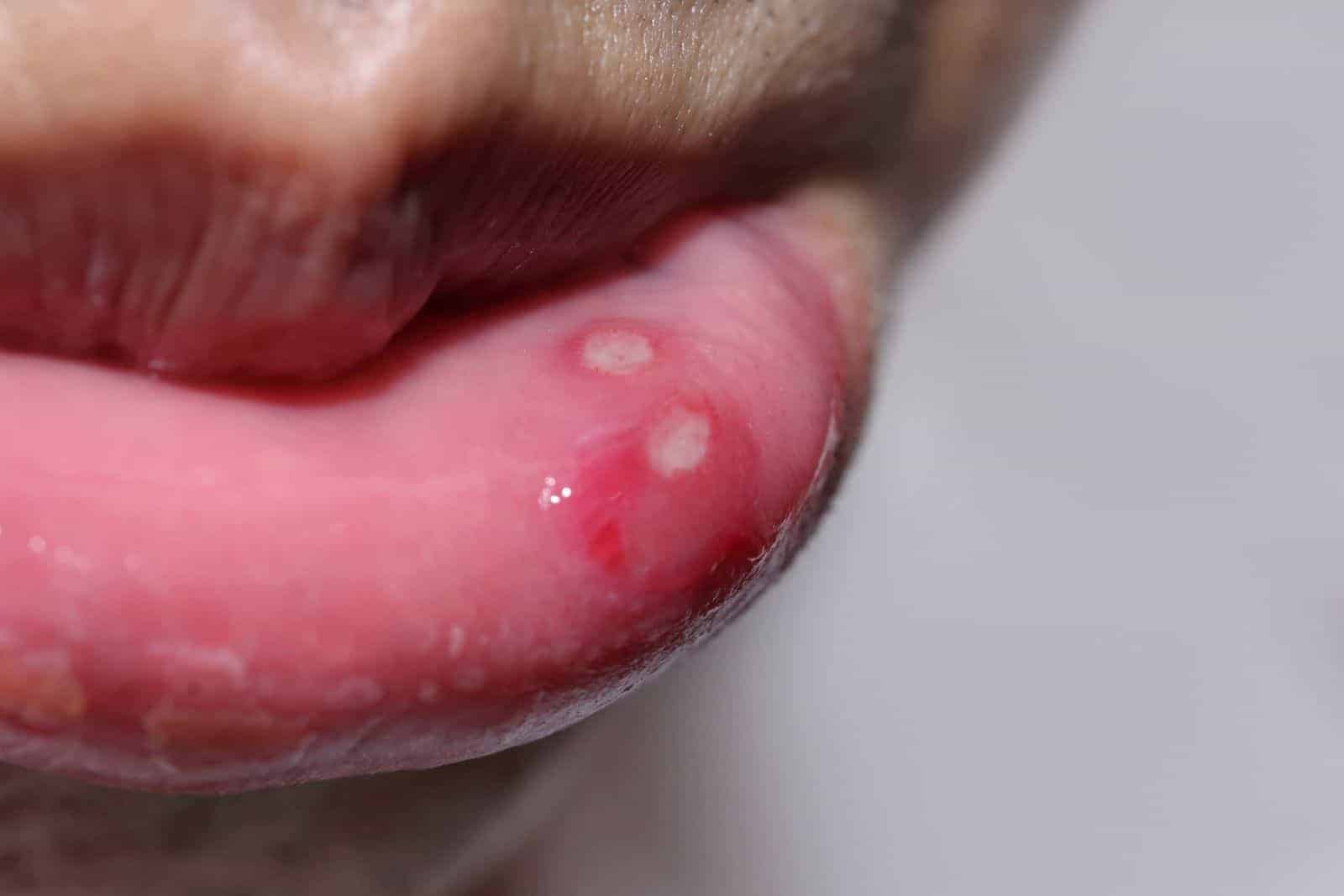Have you ever brushed your teeth in the morning and noticed a tender, painful spot in your mouth? It’s probably a canker sore. What causes this irritating mouth condition, and what can you do to remedy it?
If you have ever experienced these irritating sores, you know what they look and feel like. Canker sores are small flat ulcers or open wounds that appear in your mouth, inside of your cheeks, on your tongue, or your hard palate. Sometimes, you can get them along your gum line too.
Also known as aphthous ulcers, they usually have a white or yellow center surrounded by a ring of painful inflammation. It’s difficult to eat, drink, or even talk when you have an outbreak. Fortunately, they don’t last long and usually go away on their own, and they aren’t contagious.
Three Types of Canker Sores
Did you know that you can get three different types of canker sores? They are graded by how big they are and how long they last. Here are the types and characteristics.
1. Minor Aphthous Ulcers
 These are the most common mouth ulcers and less than a centimeter in diameter, and they often affect people between 10-20 years old. Although an outbreak can occur three to four times annually, minor aphthous ulcers usually heal within a week and don’t scar.
These are the most common mouth ulcers and less than a centimeter in diameter, and they often affect people between 10-20 years old. Although an outbreak can occur three to four times annually, minor aphthous ulcers usually heal within a week and don’t scar.
2. Major Aphthous Ulcers
Some of these mouth sores are larger and can last 14 days or longer. However, this type is less common. After they heal, they often leave a scar.
3. Herpetiform Aphthous Ulcers
On rare occasions, some mouth sores appear in a cluster of tiny ulcers that are usually gone in about seven days or so.
What Are Your Risk Factors for Canker Sores?
Even though studies show that one in five Americans will get these painful sores chronically, medical science is yet to determine their exact cause. However, some common risk factors seem to make people more susceptible to these ulcers than others.
Risks for Minor Sores
Here is the most common risk for the minor cankers in your mouth.
•Injury from a piece of food
•Rubbing caused from a sharp tooth or a dental appliance
•Chronic stress
•Acidity in certain foods like citrus fruits, tomatoes, berries, soda, coffee, or tea
•Allergic reaction to dental hygiene products or something ingested
•Bacterial infection from Helicobacter pylori, the same microbe that causes peptic ulcers
These factors can contribute to a range of dental issues that may require immediate attention. For instance, an injury from a piece of food can lead to a painful dental emergency, necessitating the expertise of an emergency dentist. They can provide prompt care to alleviate pain and prevent further complications, ensuring that patients can return to their normal routines as quickly as possible.
Additionally, chronic stress and the acidity of certain foods can exacerbate dental problems, leading to increased sensitivity or discomfort. If an allergic reaction to dental hygiene products or certain ingested items occurs, it can further complicate oral health. Consulting with an dentist not only helps address immediate concerns but also aids in identifying underlying issues, allowing for comprehensive care and preventive measures to maintain overall dental health.
Risks for Major Sores
If you have any of these uncommon risk factors, you are more apt to present with major aphthous ulcers.
• Certain chronic health conditions, like lupus, HIV/AIDS, Crohn’s Disease, celiac, Bechet’s disease, or anything that weakens the immune system
• Vitamin deficiencies such as lack of iron, folic acid, or Vitamin B12
Other Risk Factors
Women are usually more prone than men are to developing these painful sores. Researchers believe this risk may be due to female hormonal fluctuations. If you have a family history of developing aphthous ulcers, you have a greater chance of getting them, also.
 What are the Signs and Symptoms of Canker Sores?
What are the Signs and Symptoms of Canker Sores?
You will recognize the onset of these irritating mouth sores if you’ve had them in the past. Here are the common signs and symptoms of developing mouth ulcers.
•Burning and tingling sensations in your mouth, on your gums, or on your tongue before the sore appears.
•The sores appear inside your cheeks, in your mouth, on your tongue, or the back part of the roof of your mouth, which is called the soft palate.
•The sore appears as a round flat ulcer with a white or grayish center. It has an inflamed red border that is painful and tender to the touch.
Uncommon Symptoms
•Fever, usually low-grade
•Extreme fatigue
•Swollen lymph nodes in the neck or other body areas
How are Aphthous Ulcers Diagnosed?
Since these sores are common and usually go away on their own, most people recognize them and treat mild symptoms until they heal. However, you should consult a healthcare provider to diagnose these unusual symptoms.
•Abnormally large sores
•Sores are spreading throughout your mouth
•Sores last three weeks or longer
•You’re avoiding trigger foods but are still experiencing severe pain
•Dehydration, because you try to avoid the pain from drinking fluids
•A high fever
If you consult a healthcare provider team, they will do a physical exam to diagnose mouth ulcers. The exam will probably include reviewing your medical history and evaluating your risk factors. The team may also take samples of your blood to check for vitamin deficiencies or other underlying health conditions that could be responsible.
Are Canker Sores and Cold Sores the Same?
Both painful sores can appear in the mouth region, but they aren’t the same. Cold sores usually appear on the mouth and sometimes on the face, but aphthous ulcers only appear in areas inside the mouth. A virus (herpes simplex virus 1) causes cold sores, while aphthous ulcers have other causations and aren’t contagious.
Cold sores go through different stages, from a cluster of blisters to a scabbed-over sore that usually dries up in a few days. Aphthous ulcers are flat open sores with white or grayish middles. Both sores normally heal on their own and rarely have complications.
How to Treat Canker Sores
If you are like most people, you can usually take care of your mouth sores at home, and they will clear up without problems. However, more severe cases require medical intervention. Here are some common medical treatments for mouth ulcers.
•Oral medications or steroids, to reduce inflammation and promote healing
•Specialized mouth wash
•Vitamin supplements if your ulcers are due to nutritional deficiencies
•Cauterization: In severest cases, specialists can use dental lasers or chemicals like silver nitrate to cauterize the ulcers to bring quick relief from the pain and for faster healing
Natural Remedies for Canker Sores
If your mouth ulcers aren’t serious and you want to speed up the healing process naturally, here are some home remedies that you may consider.
• Saltwater Gargle
You may not like the slight sting of salt on your sores, but it is a natural way to dry up any sores.
What You Need:
•½ cup warm filtered water
•One Tsp. Salt
Directions:
Stir the salt into the water until it is completely dissolved.
Swish a mouthful of this solution around in your mouth for 20-30 seconds, then spit it out. Repeat every few hours as needed.
• Enjoy a Cup of Yogurt
Did you know that yogurt has natural probiotics that may soothe inflammation? Try to eat a cup of low-fat plain yogurt every day to promote healing for your ulcers.
• Honey
Scientific research demonstrates that honey has strong antibacterial and anti-inflammatory properties. Use a cotton swab dipped in honey and apply to your mouth sores at least three to four times a day. Be sure to use organic, unfiltered honey.
• Hydrogen Peroxide Rinse
Hydrogen peroxide is a regular treatment for wounds and infections. It can effectively rinse your mouth sores and destroy bacteria in your mouth that may make them infected.
What You Need:
• ¼ cup warm filtered water
• ¼ cup 3 percent hydrogen peroxide
Directions:
Mix peroxide in the water until it’s completely blended. Swish a mouthful around in your mouth for 20-30 seconds and spit it out. Repeat throughout the day, as necessary. You can also dab a cotton swab in the mixture to apply directly to the sores.
• Milk of Magnesia
Did you know that the same over-the-counter treatment for digestive problems can also treat ulcers? It’s a natural antacid that can balance the pH in your mouth so the sores will dry up.
Directions:
Use a cotton swab to dip into a small amount of milk of magnesia and apply it directly to the sores in your mouth. Allow it to sit on the sores for about 5-10 seconds, then rinse your mouth. Repeat three to four times daily until the sores are healed.
How Can You Prevent Canker Sores?
Experts still aren’t sure what causes these painful sores, but they have narrowed down some of the risk factors. Remember that there remains no cure for them. If you avoid some of the risks, you might prevent or minimize future outbreaks. Here are some measures to consider.
• Avoid eating or drinking things that can trigger an outbreak. These higher acidity foods like citrus fruits, tomatoes, and anything extra spicy. You should also drink more water instead of sodas, coffee, and tea.
• Chewing gum can sometimes make you accidentally bite the inside of your mouth or tongue, which results in a mouth ulcer. For fresh breath, consider sugar-free mints or a few fresh herbs like peppermint or parsley.
• Prevent injury or irritation to your mouth, gums, and tongue and use a toothbrush with soft bristles. When you brush and floss at least three times a day, you flush the bacteria from your mouth that may promote infections and mouth ulcers.
 Final Thoughts on Dealing with Canker Sores
Final Thoughts on Dealing with Canker Sores
If you are one of the many people who battle canker sores, you have hope. They aren’t usually serious, aren’t contagious, and will often heal on their own within days. However, you can still use preventative measures and home remedies to minimize outbreaks or speed healing times.

















